 Petzlover
Petzlover European Shorthair is originated from Sweden but Korat is originated from Thailand. Both European Shorthair and Korat are having almost same weight. European Shorthair may live 3 years more than Korat. Both European Shorthair and Korat has same litter size. Both European Shorthair and Korat requires Low Maintenance.
European Shorthair is originated from Sweden but Korat is originated from Thailand. Both European Shorthair and Korat are having almost same weight. European Shorthair may live 3 years more than Korat. Both European Shorthair and Korat has same litter size. Both European Shorthair and Korat requires Low Maintenance.
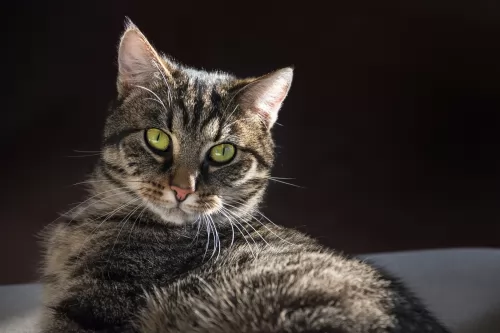 The European Shorthair is a cat breed that hails from Sweden but it also has roots that go back to the Roman Empire.
The European Shorthair is a cat breed that hails from Sweden but it also has roots that go back to the Roman Empire.
It is referred to as a natural cat breed, which means that the cat came about naturally without any human intervention.
The cat has had great hunting skills and this has what has made it sought after as a cat to keep rodents at bay. It became a famous housecat as well.
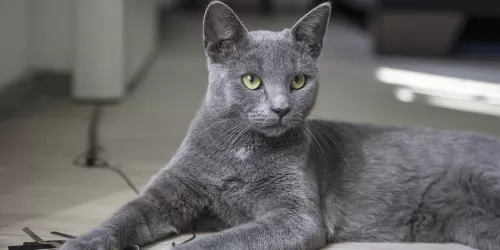 The Korat cat is a breed of domestic cat. He is a natural breed and originates from Phimai in Thailand.
The Korat cat is a breed of domestic cat. He is a natural breed and originates from Phimai in Thailand.
It is thought that the cat is named after its province of origin – Nakhon Ratchasima Province which is actually called Korat by the Thai people.
The cat is also known as the ‘Good Luck’ cat. The cats first appeared in Britain under the name Blue Siamese and later in the United States in the 1950s.
It was in 1959 that a cattery started with breeding and in 1966 the Korat was accepted into championship status.
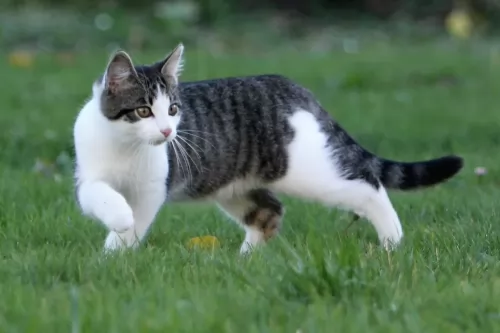 These domestic cats of Europe are a medium- to large-sized cat, weighing between 4 and 6kg, though some can be heavier.
These domestic cats of Europe are a medium- to large-sized cat, weighing between 4 and 6kg, though some can be heavier.
The European Shorthair has a fairly large head and medium-sized ears. The body is robust and round shaped. The cat’s short coat without an undercoat comes in a range of colors and patterns such as white, cream, red, black and blue with eyes that are green, yellow, brown or copper or blue.
The European Shorthair is known for its adaptable nature and the cat is able to fit into different lifestyles with ease. It's a cat that will live happily with children, pets, adults and seniors.
The cat loves his human family and loves becoming involved with fun games and activities. It's an intelligent cat too and cat food puzzles help him to think about how to get his food.
Even though your cat is social with his human family, it becomes fairly shy and nervous of strangers.
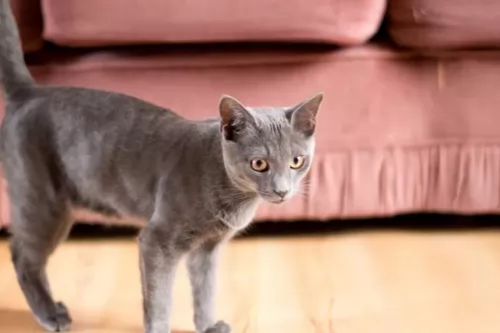 The Korat is a short-haired, single coated cat breed that has a small to medium build. He stands at about 25 – 30cm in height.
The Korat is a short-haired, single coated cat breed that has a small to medium build. He stands at about 25 – 30cm in height.
He weighs about 3 to 5kg. He is known for his large, beautiful green eyes. It’s a beautiful blue-grey cat with unusual coloring - a shimmering silver-tipped blue that the Thai people refer to as ‘rain-cloud grey’.
With his silver-tipped blue-grey coat and large green eyes, this is indeed a beautiful cat.
The Korat is a friendly cat and can get along well with children who have been taught to be kind to animals and to respect them.
They’re also cats that like to make friends with other pets in the family. They also enjoy the companionship of their human family. They’re intelligent cats too and you won’t have trouble teaching him a trick or two.
He doesn’t want to be left alone and if you work full-day, it would be best to get such a cat another cat companion. He isn’t a noisy cat but fairly quiet, enjoying a quiet environment.
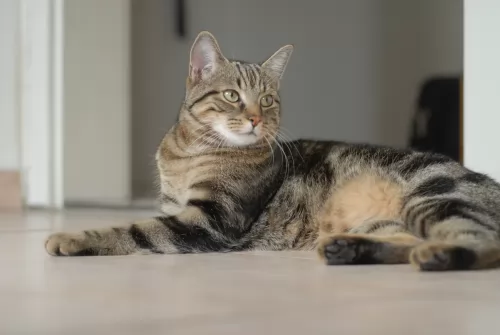 The European Shorthair is such a sweet cat and he is able to adapt fairly easily to new environments. It is such an ideal cat for households with singles, couples, families, and seniors as it adapts its personality to suit, getting on well with other pets as well.
The European Shorthair is such a sweet cat and he is able to adapt fairly easily to new environments. It is such an ideal cat for households with singles, couples, families, and seniors as it adapts its personality to suit, getting on well with other pets as well.
The cat loves his human family and wants to please, but loves to play too, being active and playful. Having one of these cats in your home is like bringing in a treasured gem.
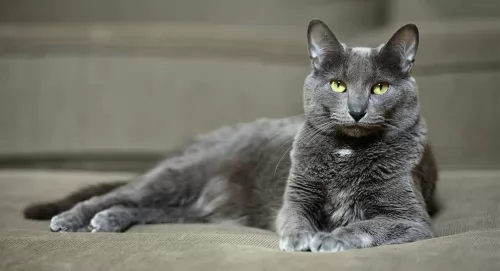 Think carefully before you take a cat into your life. If you are hardly ever at home, some cat breeds are very social, and this quiet, solitary lifestyle will be detrimental to their health.
Think carefully before you take a cat into your life. If you are hardly ever at home, some cat breeds are very social, and this quiet, solitary lifestyle will be detrimental to their health.
If you aren’t willing to learn what the nature of a cat is, your cat will be unhappy and you’ll spend a lot on vet’s fees as his immune system will be compromised.
It would be most unkind to take a Korat cat into your home and not understand something of its behavior. A cat such as the Korat thrives on plenty of love and attention.
 Even if your European Shorthair appears to be well, it is a good idea to get used to taking your cat to the vet for an annual check-up.
Even if your European Shorthair appears to be well, it is a good idea to get used to taking your cat to the vet for an annual check-up.
To provide your cat with the best chance to remain healthy, good diet and exercise is imperative. Look out for an itchy skin too as this could well be a sign that your cat is being plagued by parasites. Parasites can be a terrible problem and it will need to be attended to by your vet.
Parasites and an itchy skin can be a nightmare for your pet and make him most miserable with excessive scratching and licking as well as thinning of hair.
A new kitten will also require being vaccinated to ensure he remains healthy. These injections protect your cat from life-threatening diseases. Usually, vets start vaccines at between 8 – 12 weeks of age to protect your cat against the likes of Feline Leukaemia Virus, Feline Infectious Enteritis and Cat Flu.
There are also other vaccinations you might want to consider such as rabies and chlamydia.
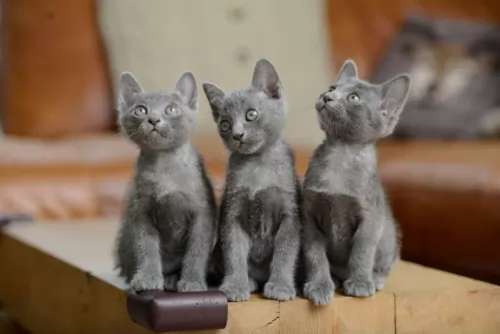 The Korat is generally healthy but even so, there are always one or two cat ailments that need to be sorted out.
The Korat is generally healthy but even so, there are always one or two cat ailments that need to be sorted out.
If your Korat cat succumbs to any one of the common cat illness there are, get veterinary help. These illnesses can be cancer, feline leukemia virus, diabetes and heartworm among others.
Feline Lower Urinary Tract Disease (FLUTD) can be found in male and female cats, often occurring in cats that are overweight or stressed.
Your cat will strain to urinate, may vomit, will have a lack of appetite, lick around the urinary area, and be most miserable. The problem is regarded as an emergency and you need to get your cat to the vet as soon as possible.
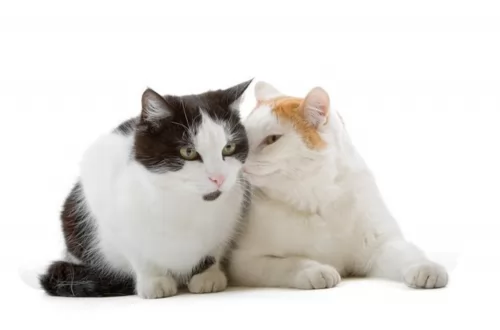 European Shorthairs like to groom themselves, but even so, you want to brush your cat once a week to keep the hair shiny and healthy. Make sure to trim your cat’s claws at the same time. It’s your time to feel for any unusual lumps or scratches on your feline friend’s skin. Check his eyes and make sure they are still bright and clear, look inside the ears to make sure they aren’t becoming clogged with dirt and wax and look inside the mouth to ensure no signs of gum- and tooth disease.
European Shorthairs like to groom themselves, but even so, you want to brush your cat once a week to keep the hair shiny and healthy. Make sure to trim your cat’s claws at the same time. It’s your time to feel for any unusual lumps or scratches on your feline friend’s skin. Check his eyes and make sure they are still bright and clear, look inside the ears to make sure they aren’t becoming clogged with dirt and wax and look inside the mouth to ensure no signs of gum- and tooth disease.
Your cat may well be outgoing with his human family, but his nervousness with strangers will require you providing him with a safe haven of his own. This might be his own bed which should be in a safe, dry, quiet area where he can retreat and feel more secure.
European Shorthairs love being outdoors and particularly if you have a female you’ll want her spayed to avoid her becoming pregnant. Cat shelters are already full of unwanted kittens and you don’t want to add to the burden. Also, have your male neutered too as he is ar less likely to want to roam. Spaying and neutering come with many health benefits too.
Be very careful of your cat’s diet. This is because the domestic cat is a carnivore and still essentially a predator, liking to hunt for their meat. They require a meat diet. However, cats have special dietary requirements and they require a balanced diet. All cats are individuals and they have different food likes and preferences, but they all need the best food there is to remain in peak condition. If you feed your cat commercially manufactured food, always follow the instructions on the label.
Provide your feline pet with cat accessories – food and water bowl, collar and tag, soft bedding, a climbing tree, scratching post, litter box, grooming accessories and toys.
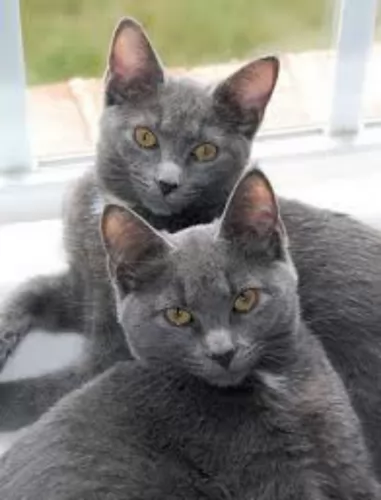 The Korat’s short single coat requires little grooming. You can brush it once a week to remove shed hairs.
The Korat’s short single coat requires little grooming. You can brush it once a week to remove shed hairs.
Trim the nails when they become too long.
Check your cat's eyes and make sure they’re still bright and clear.
Check the ears when you brush your cat and look out for signs of redness which could indicate an infection. Pet groomers or your vet can show you how to groom your cat or you can take your pet to the pet groomers.
Provide your cat with a litter box and keep it spotlessly clean. Remove the feces every single day. The litter will also need to be changed periodically.
Have your cat neutered or spayed.
Vaccinate against the major cat illness.
A good diet is essential for good health, and in fact, a cat’s food needs to be adapted to the different seasons of a cat’s life.
Cats are carnivores and they require nutrients from animal products. They need a mix of vitamins, fatty acids, minerals, and amino acids.
There are excellent commercial cat foods on the market, whether it be dry food, semi-moist food or wet food. These foods have been made to give your cat the right balance of nutrients.
In choosing cat food, it is important to consider your pet’s age and energy levels and it is also important to read the ingredients list. Look for foods in which meat is at the top of the ingredients list.